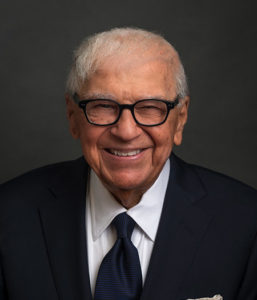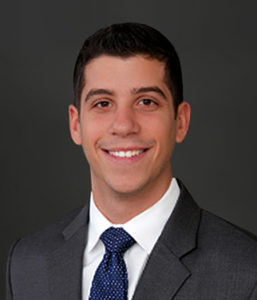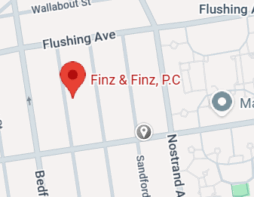
Motorcyclists often sustain severe injuries in accidents. The violent and sudden trauma the body experiences are sometimes too much to handle. Head injuries are common, especially when riders get ejected from their bikes and land on the ground with significant force. When their head hits a hard surface, the impact can damage nerves, tissue, and brain cells, causing a traumatic brain injury.
How a Motorcycle Accident Causes Brain Injuries
The brain is a sensitive organ protected by the skull’s hard surface. Surrounding fluid provides some cushioning to soften the blow of an impact from blunt force trauma or forceful movement. Although brain tissue can minimally shift or change shape without damage, the extreme forces involved in a motorcycle accident can injure the brain.
The brain can collide with the inside of the skull, rotate, or shift. The rapid change in direction and movement of the head and body can damage brain cells and nerves. Severe physical trauma to the head can fracture the skull, introducing foreign matter into the wound and causing significant pressure. The injury can affect tissue creating brain functioning issues.
Secondary complications can also arise that cause additional problems. After the initial impact, swelling and bleeding can increase pressure causing the brain to push against the inside of the skull. That can cut off blood flow, leading to more damage.
Wearing a Helmet Saves Lives
You should always wear a motorcycle helmet whether you’re the operator or passenger. Helmet use is more than just the law in New York. It also reduces the risk of severe head injury and saves lives.
According to the Centers for Disease Control and Prevention, motorcycle helmets are 37% effective for riders and 41% effective for passengers at preventing fatalities. They also minimize the risk of head injury by 69%.
Warning Signs of a Traumatic Brain Injury
A traumatic brain injury (TBI) results from a sudden jolt or blow to the head. It also occurs when the head rapidly shakes back and forth, causing the brain to move inside the skull.
Symptoms depend on the type of brain injury and the extent of the damage. Loss of consciousness after blunt trauma to the head is a telltale sign of brain damage. Many people feel confused or dizzy for a few minutes after the injury.
A mild TBI might not cause symptoms right away. Sometimes, it takes a couple of days for the pain and headaches to develop. Severe TBIs often cause immediate problems and noticeable symptoms lasting weeks or months.
The most common signs of a traumatic brain injury include:
- Seizures or convulsions
- Sleeping too much or not enough
- Blurry vision or dilated pupils
- Slurred speech
- Headaches
- Sensitivity to smell and light
- Confusion or memory problems
- Vomiting and nausea
- Behavior or mood changes
- Restlessness or agitation
- Fainting, dizziness, or fatigue
Treating a Traumatic Brain Injury After a Motorcycle Accident in New York
Recovering from a TBI differs from one person to the next. The necessary treatment and time it takes to heal depend on multiple factors, including the type and severity of the brain damage.
Rest and Pain Relievers
Typically, a mild TBI requires nothing more than rest and over-the-counter pain medication. A doctor often monitors the patient to determine whether the symptoms get better or persist and worsen. Follow-up appointments might be necessary to address any lingering effects of the injury.
Emergency Medical Treatment
Emergency medical care is essential to treat a moderate to severe TBI. The emergency room doctor assesses the injury and takes crucial steps to maintain blood pressure, prevent additional injuries to the neck or head, and ensure an adequate flow of blood and oxygen to the brain.
Medications
Doctors can prescribe multiple types of medication to minimize secondary brain damage after a motorcycle crash, such as:
- Coma-inducing drugs – Drugs that place someone in a temporary coma help the brain heal without requiring as much oxygen. It is particularly beneficial for injuries that compress the blood vessels due to increased pressure in the brain.
- Anti-seizure medications – The risk of seizures increases during the first week after sustaining a moderate to severe brain injury. Anti-seizure drugs can prevent seizures or reduce the damage caused by a seizure.
- Diuretics – A diuretic reduces fluid in tissues and increases urine output. Administering the drug intravenously can help reduce brain pressure after a TBI.
Surgery
Minimizing more damage to brain tissue often requires emergency surgery. During the operation, the doctor can repair skull fractures, remove blood clots, repair internal bleeding, and relieve brain pressure.
Rehabilitation
Rehabilitation might be necessary after a significant brain injury. The damage can cause debilitating symptoms and compromise a person’s physical and cognitive abilities. Relearning to talk, walk, and perform other basic movements requires ongoing care with a rehabilitative specialist or physical therapist.
Specialists often involved in rehabilitative services include:
- Physical therapist – A physical therapist helps improve mobility and assists the patient in learning how to walk, move, and balance again.
- Rehabilitation nurse – A rehabilitation nurse provides ongoing services to help patients plan how to manage their condition after they’re discharged from the rehabilitation facility or a hospital.
- Occupational therapist – Working with an occupational therapist can help someone relearn or improve skills to perform everyday activities.
- Neuropsychologist – A neuropsychologist assesses cognitive performance and impairment after a brain injury, teaches coping strategies, and manages behaviors.
- Speech and language therapist – A speech and language therapist helps improve a person’s communication skills.
Long-Term Complications of a Brain Injury
Long-term cognitive, emotional, and motor impairments can result from a TBI in a motorcycle crash. For some accident victims, the damage is permanent.
The long-term effects of a TBI can include:
- Mood swings
- Trouble concentrating and focusing
- Changes in personality
- Challenges regulating emotions
- Extreme reactions to stimuli, event minor emotional stimuli
- Changes in sleeping patterns
- Short-term and long-term memory loss
Pursue Compensation for Your Brain Injury in New York
Finz & Finz, P.C. has 40 years of experience fighting for injured accident victims in New York. We understand the limitations of a traumatic brain injury and the challenges of holding someone else accountable for the harm they cause.
Let us seek the financial award you deserve for the injury you sustained in a motorcycle crash. If you got hurt in a motorcycle crash due to another driver’s negligence, call 855-TOP-FIRM for a free consultation.





























